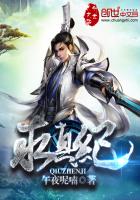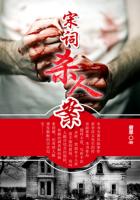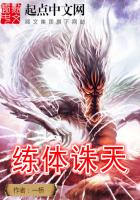“Responsibility” may not be a completely accuratetranslation.In Chinese,it means “guarantee what I want and you can do what you want.” At first the responsibil-ity contract was applied to production teams,but in 1981it was extended to households with the specification of target outputs.By 1983,the terms changed to house-holds guaranteeing the delivery of fixed amounts and keeping the residual.The official extractions were sev-eral and complicated,but they were simplified over time,until in 2005 agricultural taxation was abolished.The government maintained the right to purchase agriculturalproducts at controlled prices until the early 1990s.
【27】Steven N.S.Cheung,“China in Transition: Where Is She Heading Now?” Contemporary Policy Issues(October 1986).
【28】张五常,《从“大锅饭”到“大包干”》,一九八四年十一月十五日发表于《信报》,其后转刊于《中国的前途》。
There is no question that the responsibility contractmet with great success in agriculture.Land was fairlyevenly distributed among households,mostly by headcount,and transfers of the right to land use for agricul-tural purposes were soon allowed through reassignmentof responsibility contracts.However,enormous difficul-ties emerged when responsibility contracts were intro-duced in industry.In industrial production physicalassets depreciate and may get stolen,and state workerscould not be discharged under existing laws.Trying toget to the bottomof the difficulties,in 1985 the City of Shenzhen assigned three young men to assist myresearch.Sample contracts in manufacturing werepromptly produced upon request.They took me to visitfactories.The results fromall this effort were meager.The changes were too rapid,and with contractual termschanging so frequently I was unable to produce analyti-cally interesting generalizations.
It was at this juncture,around 1985,that I stronglyurged the separation of use rights and ownership rights,hoping that as a result state-owned enterprises can bemore readily privatized.29In 1986,I was invited toBeijing Steel to look at its responsibility arrangements.
【29】Elaborations of this viewcan be found in Sections II and Ⅲof my Chinese work On China Again《再论中国》,which con-tains nine articles written between May 1986 and March 1987.
Istayed in the dormitory for several nights and gave a talk.Sixteen years later,on 22 April 2002,I had thehonor of being invited to deliver a lecture at the PartySchool of the Central Committee of the Communist Party of China.The dean of its business school pickedme up at the airport,and on the way he told me he was inthe audience at Beijing Steel.He said that after wardseveryone was warned not to believe my suggestion that own ership rights and use rights should separate,and thatthe responsibility contract with delineated use rights should be pushed to the limit.“Heroes think alike”——so the Chinese saying goes——not much later,separation ofuse rights and ownership rights became a pillar of what Deng Xiaoping was to call “Chinese Style Socialism.”
The gentleman fromthe Party School quietlyremarked that back in 1986 he could not imagine hewould ever own a computer,but now he could afford tobuy a newone every other year.I was deeply moved tohear this,for old timers like us who knew what the coun-try was like not that long ago,what has happened is more of a miracle than can be appreciated by younger people who know little of China’s past.It was a long drive to the Party School,and I came to realize that the old comrade was proud of the China miracle,and that there must have been many like him who stuck to their guns when the ship was taking water.
Ⅴ.The Manifestation of the Responsibility Contracts and the Rise of the Competing Xians
The responsibility contract was a success in agricul-ture,though it took some years to modify and simplify the complicated arrangement to yield the present form of transferable land leases.In the process,the authoritiesgradually relinquished direct controls in favor of delin-eation of use rights.By the early 1990s price controlwas dropped,and in 2005 agricultural taxation was abol-ished,thus rendering the responsibility contract in agri-culture the equivalent of a long land lease free of taxa-tion.Nonetheless,it is still formally a responsibilitycontract.The selling of agricultural land,which in reali-ty is a transfer of the land lease,is still called “changingresponsibility.”
Applying the responsibility contract to industry was more of a problem.When I began to study the matter in the mid-1980s,the main difficulty lay in depreciableindustrial assets.Responsibilities over maintenance andreinvestment led to frequent controversy between theauthorities and state enterprises.I proposed several solu-tions,such as the issuance of transferable stocks.30 Thisscheme was adopted in the late 1990s,but only for prof-itable state enterprises enjoying protected monopoly sta-tus.As for the numerous losing concerns,their physicalassets were mostly depreciated to zero value by the early1990s.In fact,by that time the authorities had difficultygiving away loss-making state-owned factories.
【30】See the sources in n.29 above and my Chinese work The Economic Revolution of China《中国的经济革命》(1993),reis-sued with additional chapters in April 2002(花千树出版有限公司).















